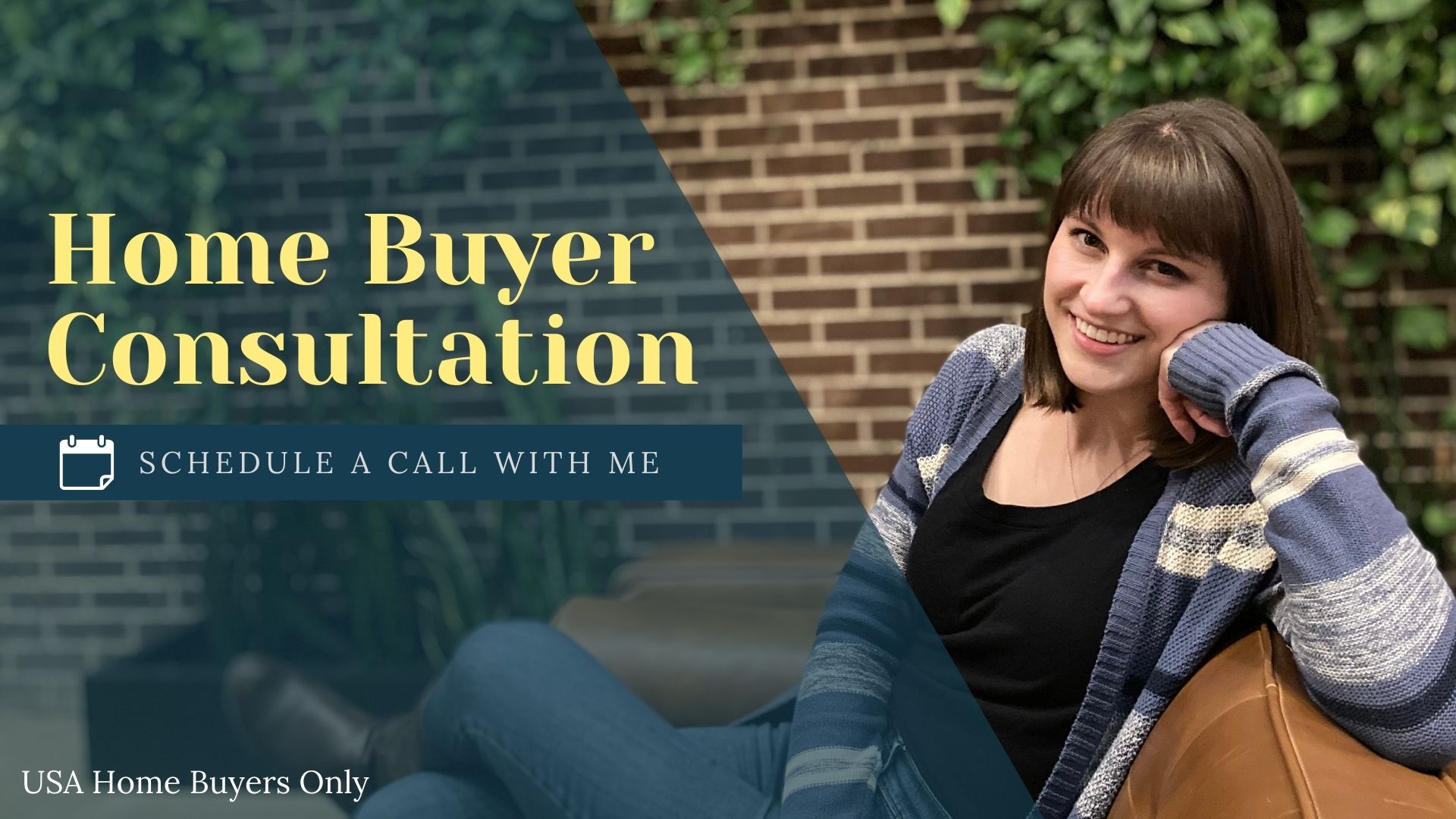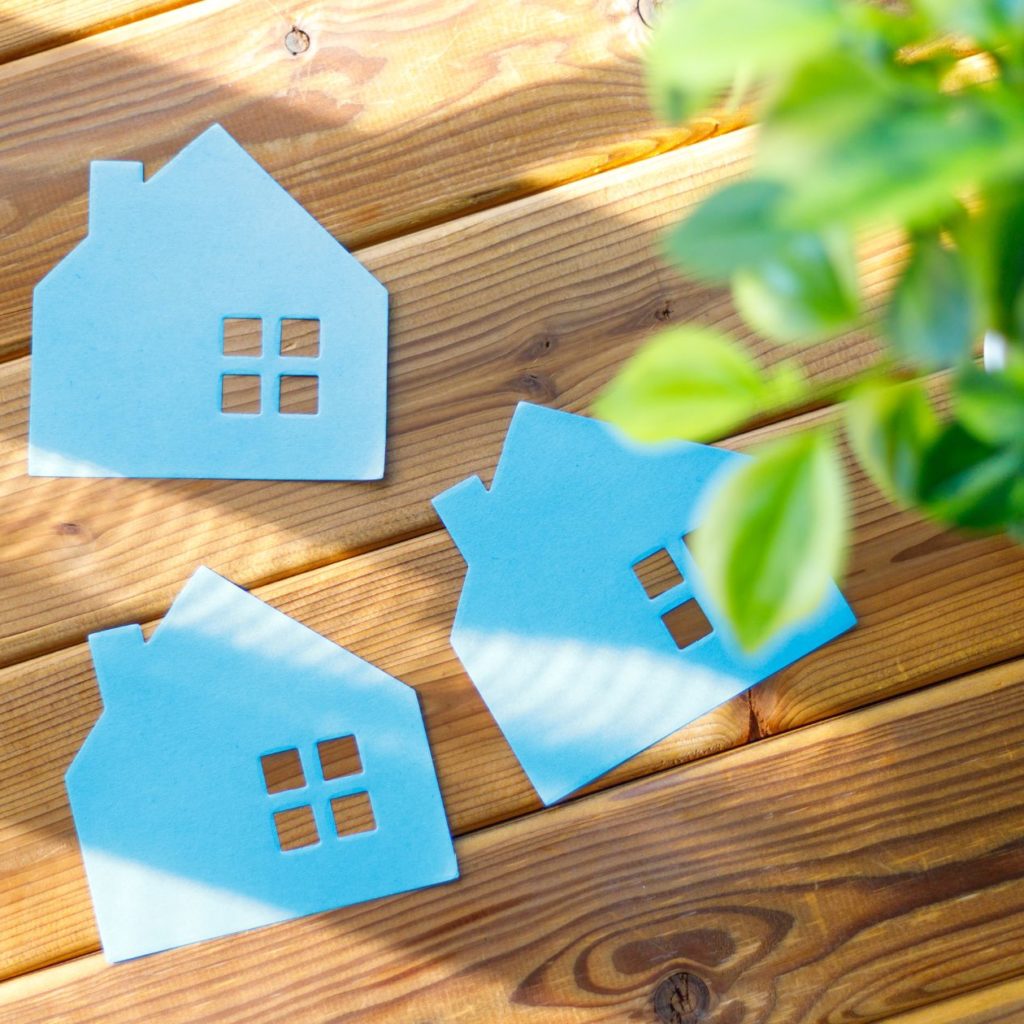7 Expenses That Go Into Buying a House You May Not Know About
Buying a house for the first time can be super exciting, but also overwhelming at the same time. Whether you have actually started the home buying process or not, you need to be aware of all the different expenses that go into buying a house.
As a real estate agent, I run into many first time home buyers who believe that the only expense they need to pay for when purchasing a home is the downpayment. While the downpayment is typically the largest expense you will end up paying for, it is not the only expense that goes into purchasing a house.
In order to help you financially prepare to buy your first home, here is a list of expenses that go into buying a house that you may not have known about.
Related: 5 Things to Consider Before Buying Your First House

7 Expenses That Go Into Buying a House You May Not Know About
1. Earnest Money
Earnest money is the first expense that goes into buying a house. It is used to show the homeseller that you are serious about your offer and proves that you are committed to following through on your purchase.
Earnest money is also known as a good faith deposit. When the seller accepts your offer, they take their property off the market and the closing process begins. If the deal falls through along the line, the seller has to relist their property and start all over. This could result in a big financial loss for them.
The earnest money helps to protect the seller in the case that the buyer backs out of the offer. Earnest money is kept in an escrow account until the purchase is complete. If the deal is successful, the earnest money is actually applied to the buyer’s down payment or closing costs, and typically shows up as a credit when making the final payments.
How Much To Plan for the Earnest Money
While the buyer and seller can negotiate the earnest money deposit, it often comes out to be 1% and 5% of the home’s purchase price. In some markets, the earnest money is a flat number like $1,000.
It can also be determined by what kind of market you are currently experiencing. For example, a struggling property in a slow real estate market may require less earnest money than a hot home in a seller’s market.
Be sure to consult with your local trusted real estate agent to determine how much earnest money is enough in your market.
2. Down Payment
A down payment is the most understood expense that goes into buying a house. It is usually the largest expense when purchasing your house.
The down payment is an agreed upon percentage of the total value of the home determined between the buyer and the financier (typically a bank or other lender). You, as the buyer, pay that portion of the purchase price, and your lender will provide the rest of the purchase price to the seller.
You are then responsible for paying your lender the amount that they paid to the seller plus interest. The bigger your down payment is, the less you will have to pay back to the lender over time.
How Much To Plan for the Down Payment
Your down payment will depend on what kind of financing you secure for your home purchase. It can be as low as 3.5% and as high as 50%.
Some states offer first time home buyer programs with 0% down – or no down payments required at all. However, these programs typically come with high interest rates when it comes to your monthly mortgage payments.So be sure to weigh all pros and cons.

3. Closing Costs
The closing costs are made up of a few different expenses that are incurred by transferring the title of the property from the seller to the buyer. Some of the fees that go into the closing costs can include (but are not limited to), an attorney fee, escrow fee, origination fee, recording fee, title search fee, and an underwriting fee.
What is included in the closing costs depends on the state and the specific process for the purchase of a particular home. In some states the closing costs can be paid for by the seller, but it is typical for the buyer to pay them.
Closing costs are due at the actual closing of the home purchase and are typically added into the total expenses needed at closing (added to the down payment).
How Much to Plan For the Closings Costs
As stated above, closing costs can vary per state and per home. However, a general rule of thumb is 2-5% of the purchase price of a home. A quick Google search for the average closing costs in your state can help you be prepared when you purchase a home.
4. Inspection Fee
An inspection fee is pretty self explanatory, but it is the cost to have an inspector investigate a house. This expense happens during the closing process and is typically the 2nd thing a buyer pays for when purchasing a house.
Most home purchases have an inspection contingency, meaning that if the inspector finds anything that the buyer is not comfortable with, the buyer can back out of the purchase and get their earnest money back. However, the inspection fee is not refunded and will need to be paid once again during the closing process of the next house.
How Much to Plan For the Inspection Fee
Inspection fees will vary per inspector but a buyer can expect to pay a minimum of $400 for a home inspection and upwards of $600.
In some cases, a buyer may want to add on additional inspection services like a termite inspection, sewer inspection, radon inspection, structural inspection, or mold inspection. Each of these additional inspections comes with an added cost.
5. Appraisal Fee
An appraisal fee is another expense that goes into buying a house and is charged by an appraiser to determine the value of a home. The fee is typically paid for at the time of the service, however in some states the appraisal fee is paid for at closing.
Most mortgage lenders will require that an appraisal is done on a property in order for them to approve the loan they are about to provide.
How Much to Plan For the Appraisal Fee
Appraisal fees can range from a minimum of $300 to upwards of $500, though prices vary. The bigger the house, the more the appraisal cost.
6. Prorated Property Taxes
Property taxes in most states are paid in lump sums. Because of this fact, a buyer must pay a prorated amount in order to cover the appropriate taxes for the time they will take possession of the house.
How Much to Plan For the Prorated Property Taxes
This will wildly vary based on when the property taxes were paid last.
The amount is proportional to the day. If you buy a property a few days after the property taxes were paid, you will be responsible for the majority of that payment. Versus if you purchase a property right before the next lump sum of property taxes are due, you will only owe what is left.
After the purchase of a house, it is normal to pay for your taxes through your escrow account when paying your monthly mortgage payments.
7. Home Insurance
If you are using a mortgage to buy a house, you will be required to purchase home insurance for your property. Even if you aren’t buying a house using a mortgage, home insurance is something you shouldn’t skip out on.
How Much to Plan for Home Insurance
You will need to get a quote for home insurance in order to determine how much it will cost. This can easily be done even before you pick out the house of your dreams as long as you can tell the insurance provider some basic information about what you are looking to purchase.
There are plenty of online tools that can also provide a quote for you in a few seconds.
How Much to Plan for When Buying a House
All together there are quite a few expenses that go into buying a house. This list isn’t exhaustive, but will get you started if you are planning to purchase a home soon. Some other expenses to keep on your radar are prorated utilities, and HOA dues.
The total amount you will need when buying a house will be completely dependent on the home itself, your location, your loan terms, and what you negotiate with the seller.
Don’t let this list of expenses frighten you out of buying a house! It can most definitely be done, and to do it properly, you’ll want to plan ahead for these expenses.
Need Help Becoming Financially Prepared to Buy Your First House?

Buying a home for the first time can be slightly overwhelming and is easier done when you have someone helping you through the process. I offer free home-buyer consultations for anyone who could use a friend to walk them through the process (available for US residents only). Take the stress and confusion out of buying a home, and make sure you’re getting started on the right foot.
I can even help you connect with a fantastic real estate agent in the area you are looking to buy.
You May Also Like:
10 Things to do Before Moving Into a New House
What To Expect During the Closing Process
5 Steps to Creating A Household Budget
How to Create Awesome Criteria for Buying Rental Properties



